Herbal teas have been cherished for centuries, not only for their delightful flavors but also for their numerous health benefits. Unlike traditional teas, which are derived from the Camellia sinensis plant, herbal teas are made from a variety of herbs, flowers, roots, and seeds. Each type of herbal tea carries its own unique blend of vitamins, minerals, antioxidants, and other beneficial compounds that contribute to overall well-being.
In this article, we will explore the rich history of herbal teas, delve into the health benefits of some of the most popular varieties, and discuss how you can incorporate these natural beverages into your daily routine for optimal health.
The History of Herbal Teas
Herbal teas have a long and storied history, dating back to ancient civilizations. From the Egyptians to the Chinese, cultures around the world have used herbal infusions as natural remedies for various ailments. Here are a few highlights of the history of herbal teas:
- Ancient Egypt: The Egyptians were among the first to cultivate and use herbs for medicinal purposes. They brewed herbal infusions with ingredients like peppermint, chamomile, and fennel to treat digestive issues, fever, and other common ailments.
- Traditional Chinese Medicine (TCM): Herbal teas have played a crucial role in Traditional Chinese Medicine for thousands of years. TCM practitioners believe that different herbs can balance the body’s energy (Qi) and address specific health concerns. For example, ginger tea is often recommended to stimulate digestion, while chrysanthemum tea is used to cool the body and reduce inflammation.
- Ayurveda: In India, Ayurveda, a holistic healing system that dates back over 3,000 years, has long utilized herbal teas to promote health and balance in the body. Tulsi (holy basil) tea, for instance, is revered for its adaptogenic properties, helping the body cope with stress and support overall vitality.
- Western Herbalism: In Europe, herbalism has deep roots, with herbal teas used as natural remedies for a wide range of conditions. Herbs like peppermint, sage, and thyme have been used for centuries to alleviate symptoms of colds, indigestion, and anxiety.
Today, herbal teas are enjoyed worldwide, both for their therapeutic effects and as a comforting, flavorful alternative to caffeinated beverages.
The Health Benefits of Herbal Teas
Herbal teas offer a myriad of health benefits, thanks to the diverse array of plants used in their preparation. These benefits range from boosting the immune system to improving digestion, reducing stress, and promoting sleep. Below, we’ll explore some of the most popular herbal teas and their specific health benefits.

1. Chamomile Tea: The Calming Elixir
Chamomile tea is perhaps one of the most well-known herbal teas, celebrated for its calming and soothing properties. Made from the dried flowers of the chamomile plant (Matricaria chamomilla or Chamaemelum nobile), this tea has a gentle, floral flavor and is often used as a natural remedy for anxiety and insomnia.
Health Benefits:
- Promotes Relaxation and Sleep: Chamomile tea contains apigenin, an antioxidant that binds to certain receptors in the brain, promoting relaxation and reducing anxiety. This makes chamomile an excellent choice for those struggling with insomnia or stress-related sleep disturbances.
- Supports Digestive Health: Chamomile tea can help soothe an upset stomach and alleviate symptoms of indigestion, gas, and bloating. It may also help relieve symptoms of irritable bowel syndrome (IBS).
- Anti-Inflammatory and Antioxidant Effects: Chamomile has anti-inflammatory and antioxidant properties, which can help reduce inflammation in the body and protect against oxidative stress.

2. Peppermint Tea: A Digestive Aid
Peppermint tea, made from the leaves of the peppermint plant (Mentha piperita), is a refreshing and invigorating herbal tea with a cooling, minty flavor. It is widely recognized for its ability to support digestive health and alleviate various gastrointestinal issues.
Health Benefits:
- Relieves Indigestion and Bloating: Peppermint tea helps relax the muscles of the gastrointestinal tract, making it effective in relieving indigestion, bloating, and gas. It is also commonly used to soothe symptoms of irritable bowel syndrome (IBS).
- Alleviates Headaches: The menthol in peppermint tea has a cooling and calming effect, which can help reduce the severity of tension headaches and migraines.
- Supports Respiratory Health: Peppermint tea can help clear congestion and relieve symptoms of colds and sinusitis. The menthol in peppermint acts as a natural decongestant and can help open up the airways.
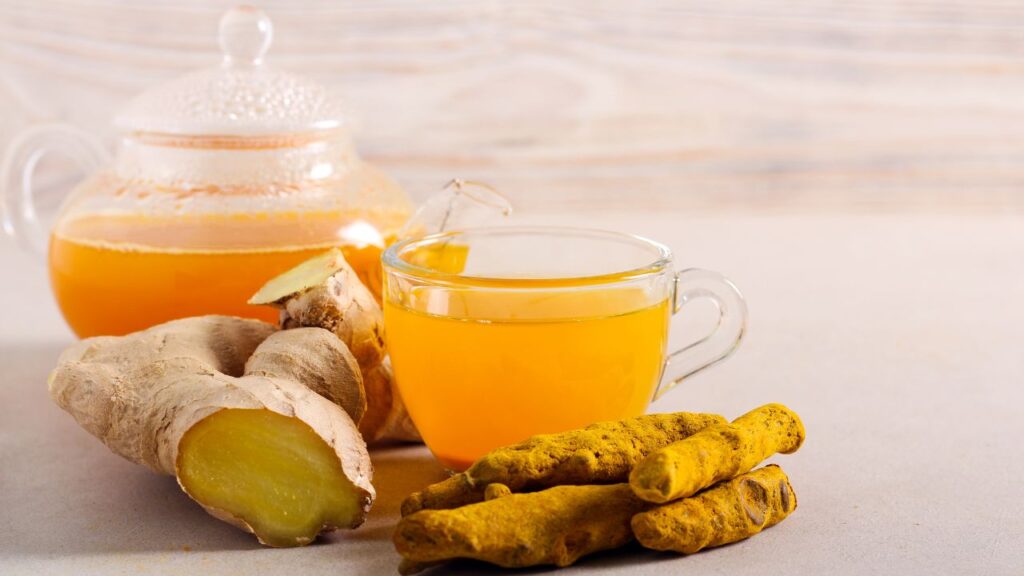
3. Ginger Tea: The Anti-Inflammatory Powerhouse
Ginger tea, made from the root of the ginger plant (Zingiber officinale), is a warming and spicy herbal tea with a long history of use in traditional medicine. It is particularly well-known for its anti-inflammatory and digestive benefits.
Health Benefits:
- Reduces Nausea: Ginger tea is a popular natural remedy for nausea and vomiting, particularly during pregnancy or after surgery. It is also effective in reducing symptoms of motion sickness.
- Supports Digestive Health: Ginger tea can help stimulate digestion, reduce bloating, and alleviate symptoms of indigestion. It also promotes the production of digestive enzymes, aiding in the breakdown of food.
- Anti-Inflammatory and Antioxidant Properties: Ginger contains bioactive compounds like gingerol, which have powerful anti-inflammatory and antioxidant effects. Regular consumption of ginger tea can help reduce chronic inflammation and protect against oxidative stress.
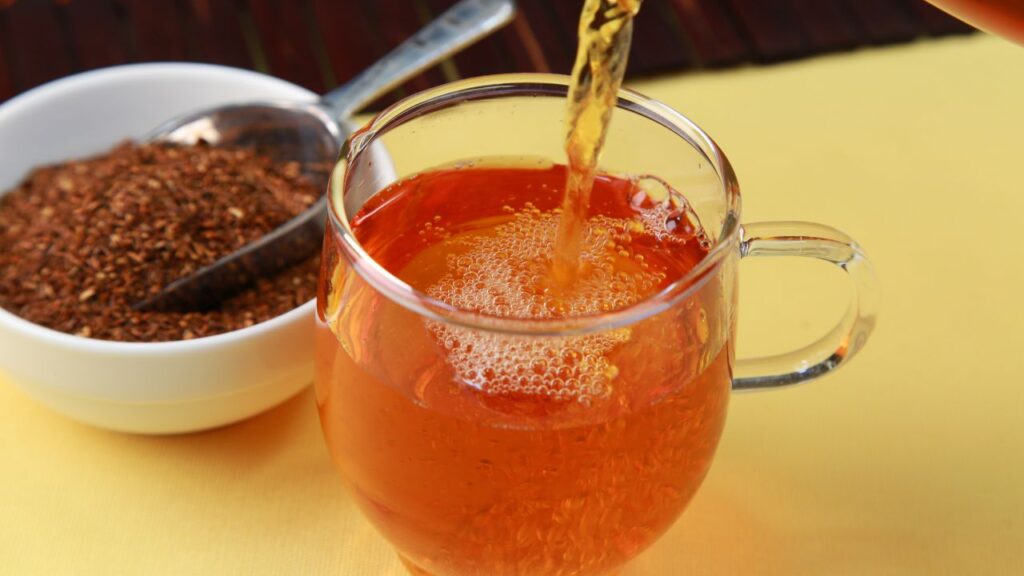
4. Rooibos Tea: The Caffeine-Free Antioxidant
Rooibos tea, also known as red bush tea, is a caffeine-free herbal tea made from the leaves of the Aspalathus linearis plant, native to South Africa. With its rich, earthy flavor and high antioxidant content, rooibos tea is a popular choice for those seeking a healthy, caffeine-free alternative to traditional black or green tea.
Health Benefits:
- Rich in Antioxidants: Rooibos tea is packed with antioxidants, including aspalathin and quercetin, which help protect the body from oxidative damage caused by free radicals. This can reduce the risk of chronic diseases like heart disease and cancer.
- Supports Heart Health: Rooibos tea has been shown to help lower blood pressure and reduce cholesterol levels, supporting overall cardiovascular health.
- Anti-Inflammatory Effects: The antioxidants in rooibos tea also have anti-inflammatory properties, which can help reduce inflammation in the body and alleviate symptoms of conditions like arthritis.

5. Hibiscus Tea: The Heart-Healthy Herbal
Hibiscus tea, made from the vibrant petals of the hibiscus flower (Hibiscus sabdariffa), is a tart and tangy herbal tea with a striking deep red color. This tea is not only refreshing but also offers several health benefits, particularly for cardiovascular health.
Health Benefits:
- Lowers Blood Pressure: Hibiscus tea has been shown to have blood pressure-lowering effects, making it beneficial for individuals with hypertension. Regular consumption of hibiscus tea can help maintain healthy blood pressure levels.
- Rich in Antioxidants: Hibiscus tea is high in antioxidants, particularly anthocyanins, which help protect the body from oxidative stress and reduce the risk of chronic diseases.
- Supports Weight Management: Hibiscus tea has been linked to improved metabolism and weight management, as it can help reduce the absorption of carbohydrates and fats in the body.
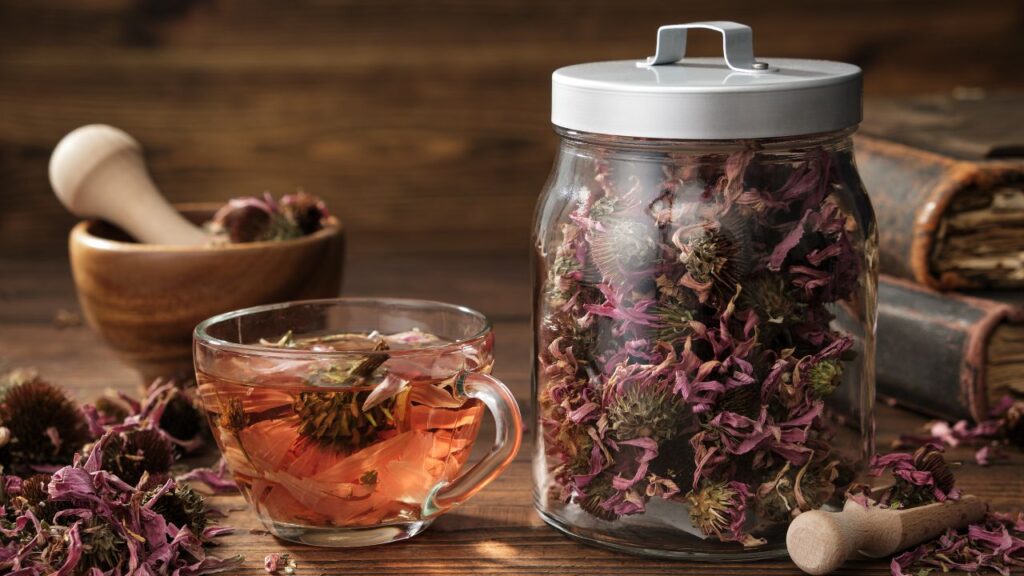
6. Echinacea Tea: The Immune Booster
Echinacea tea, made from the leaves, flowers, and roots of the echinacea plant (Echinacea purpurea), is a popular herbal tea known for its immune-boosting properties. It is commonly used to prevent and treat colds and other respiratory infections.
Health Benefits:
- Boosts the Immune System: Echinacea tea is believed to enhance the immune system by increasing the production of white blood cells, which help fight off infections. Regular consumption of echinacea tea may reduce the duration and severity of colds.
- Anti-Inflammatory Effects: Echinacea contains compounds that have anti-inflammatory properties, which can help reduce inflammation in the body and alleviate symptoms of respiratory infections.
- Supports Respiratory Health: Echinacea tea is often used to soothe symptoms of colds, flu, and bronchitis, as it can help reduce congestion and support respiratory function.
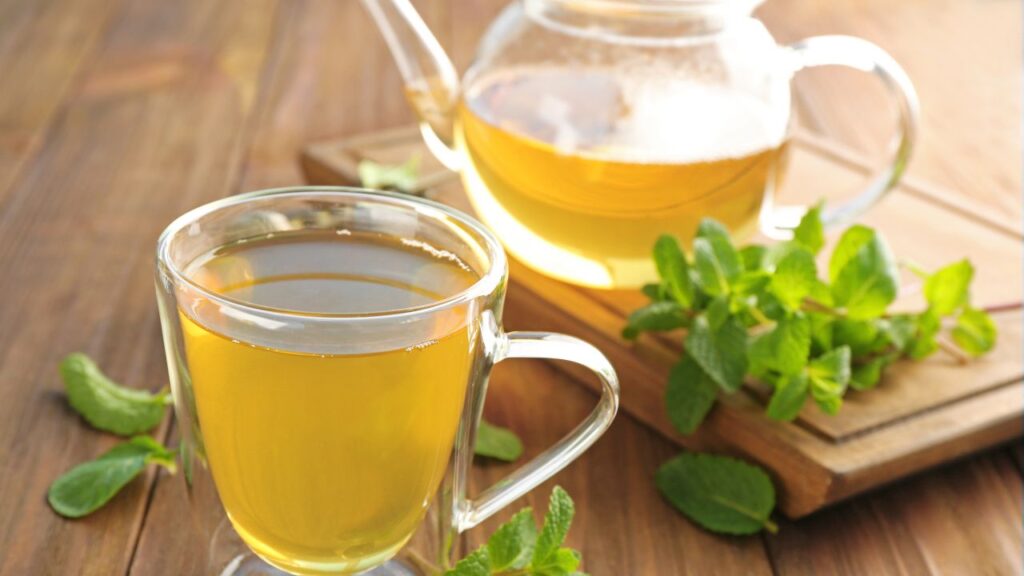
7. Lemon Balm Tea: The Mood Lifter
Lemon balm tea, made from the leaves of the lemon balm plant (Melissa officinalis), is a fragrant and citrusy herbal tea with a calming and uplifting effect. It is often used to reduce stress and improve mood.
Health Benefits:
- Reduces Stress and Anxiety: Lemon balm tea has a calming effect on the nervous system, making it an effective natural remedy for reducing stress, anxiety, and mild depression. It may also help improve sleep quality.
- Supports Cognitive Function: Lemon balm tea has been shown to improve cognitive function, including memory and concentration. It is often used to enhance mental clarity and focus.
- Supports Digestive Health: Lemon balm tea can help soothe an upset stomach, reduce bloating, and alleviate symptoms of indigestion. It may also help relieve symptoms of irritable bowel syndrome (IBS).
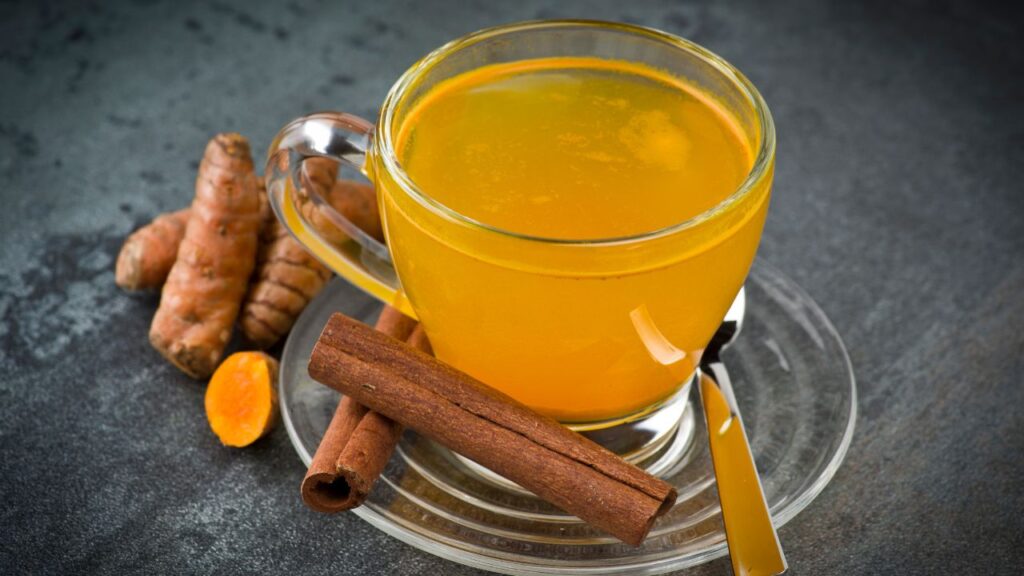
8. Turmeric Tea: The Golden Healer
Turmeric tea, made from the root of the turmeric plant (Curcuma longa), is a vibrant yellow herbal tea with a warm, earthy flavor. Turmeric has long been used in traditional medicine for its powerful anti-inflammatory and antioxidant properties
.
Health Benefits:
- Anti-Inflammatory Effects: Turmeric tea is rich in curcumin, a compound with potent anti-inflammatory properties. Regular consumption of turmeric tea can help reduce inflammation in the body and alleviate symptoms of conditions like arthritis and inflammatory bowel disease (IBD).
- Supports Joint Health: The anti-inflammatory effects of turmeric tea make it beneficial for joint health, particularly for individuals with arthritis. It can help reduce pain, stiffness, and swelling in the joints.
- Boosts Immune Function: Turmeric tea has immune-boosting properties that can help protect the body from infections and support overall health. It is also believed to have antiviral and antibacterial effects.
How to Incorporate Herbal Teas into Your Daily Routine
Incorporating herbal teas into your daily routine is a simple and enjoyable way to support your health and well-being. Here are some tips on how to make the most of these natural beverages:
- Choose the Right Tea for Your Needs: With so many herbal teas available, it’s important to choose the ones that best suit your health goals. For example, if you’re looking to improve digestion, opt for peppermint or ginger tea. If you need help with relaxation, chamomile or lemon balm tea may be more appropriate.
- Brew Your Tea Properly: To get the most out of your herbal tea, be sure to brew it properly. Use fresh, high-quality herbs or tea bags, and steep them in hot water for the recommended amount of time (usually 5-10 minutes) to extract the beneficial compounds.
- Experiment with Blends: Don’t be afraid to experiment with different herbal tea blends to create your own unique flavors and health benefits. For example, you could mix chamomile with lemon balm for a calming bedtime tea, or combine ginger with turmeric for an anti-inflammatory boost.
- Make It a Ritual: Incorporating herbal teas into your daily routine can be a relaxing and grounding ritual. Take a few moments each day to savor your tea, whether it’s in the morning to start your day, in the afternoon for a pick-me-up, or in the evening to wind down.
- Use Herbal Teas in Cooking: Herbal teas can also be used in cooking to add flavor and health benefits to your meals. Try using brewed herbal teas as a base for soups, stews, or sauces, or use them to infuse flavor into grains, desserts, or smoothies.
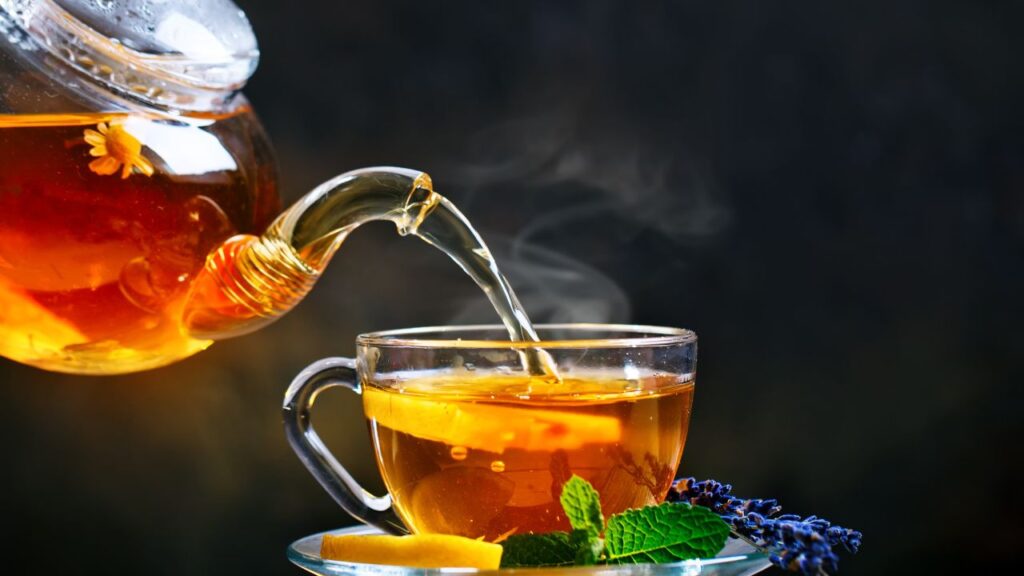
Conclusion
Herbal teas are a powerful and versatile way to support your health and well-being. With their wide range of flavors and health benefits, these natural beverages can help you relax, improve digestion, boost immunity, and more. Whether you’re new to herbal teas or a seasoned enthusiast, incorporating these healing infusions into your daily routine can be a simple and enjoyable way to enhance your overall health.
As you explore the world of herbal teas, remember to choose high-quality ingredients, brew your teas properly, and enjoy the process. With the right approach, herbal teas can become an integral part of your holistic wellness journey, offering a natural and effective way to support your health and well-being.



